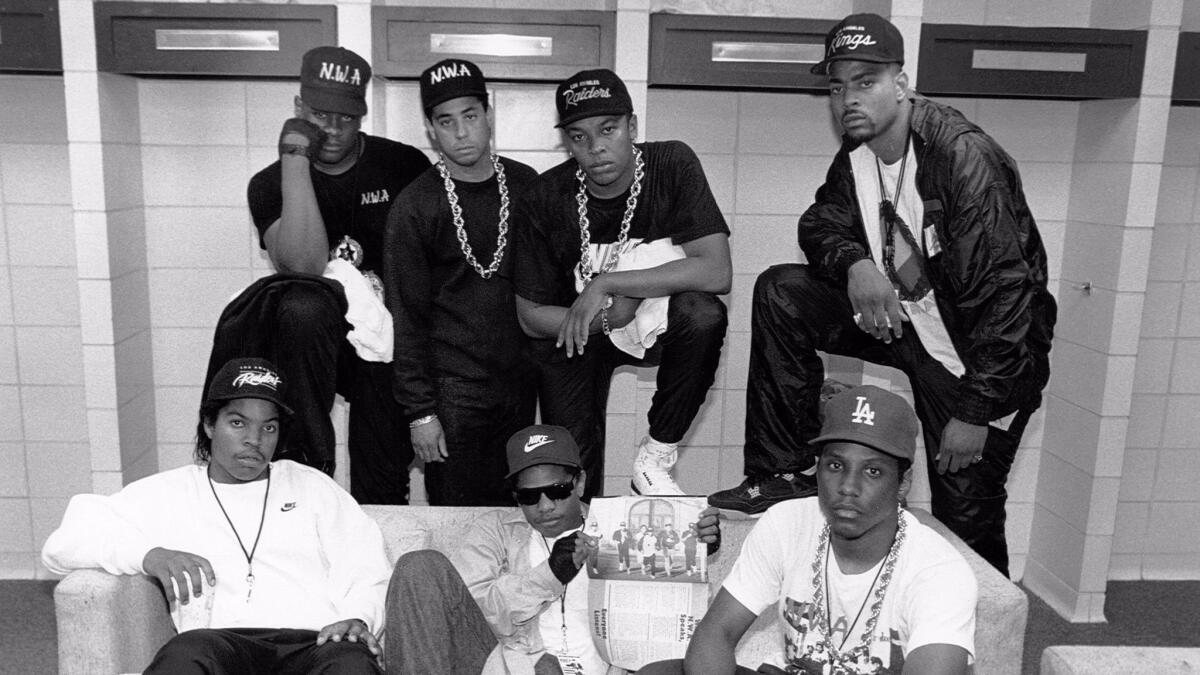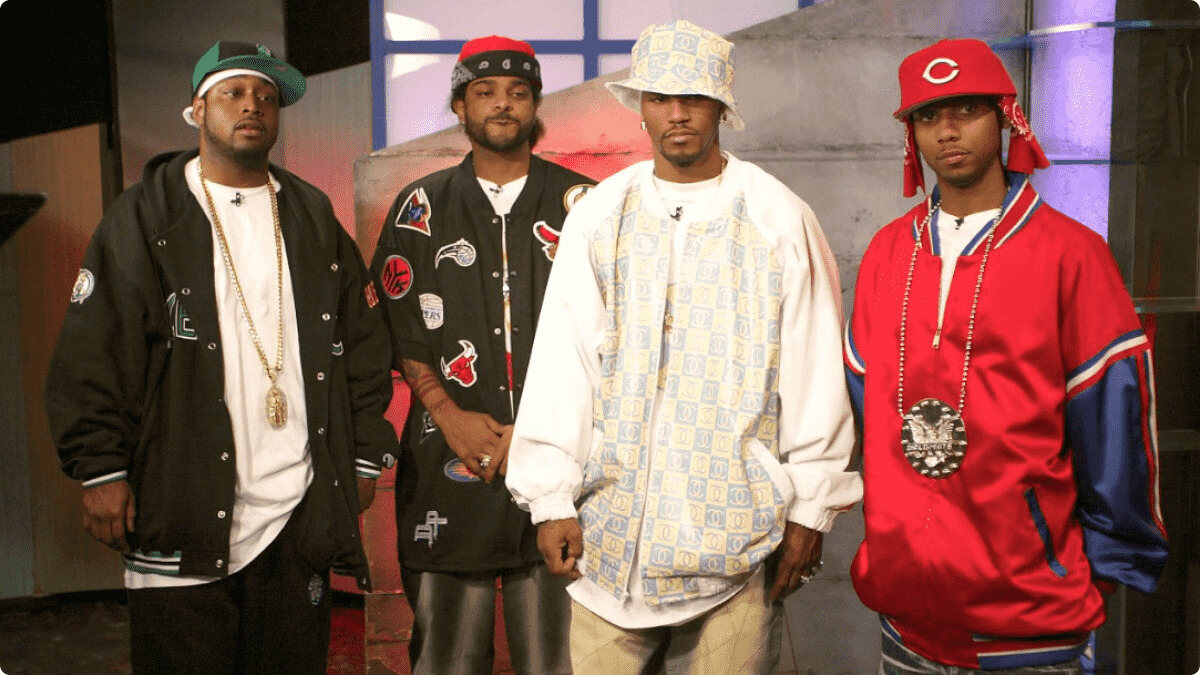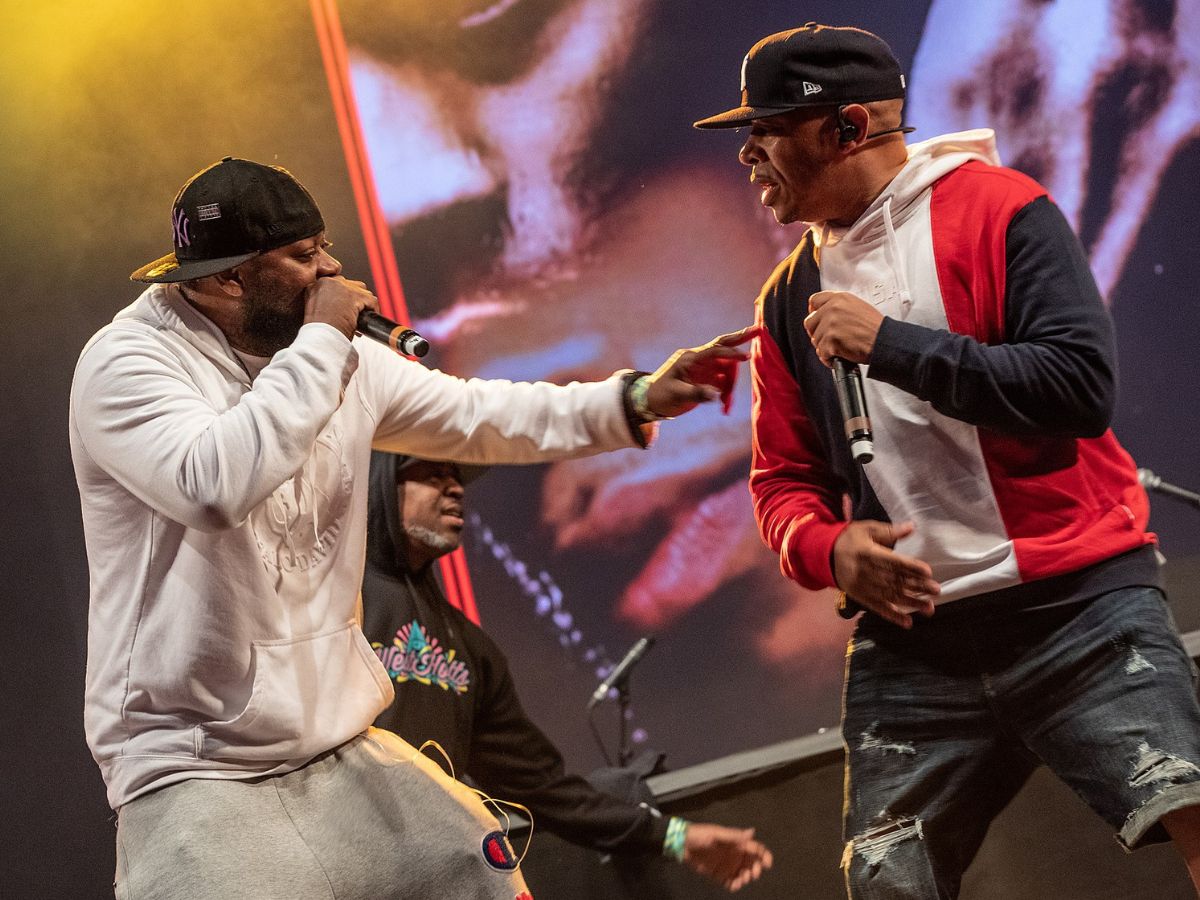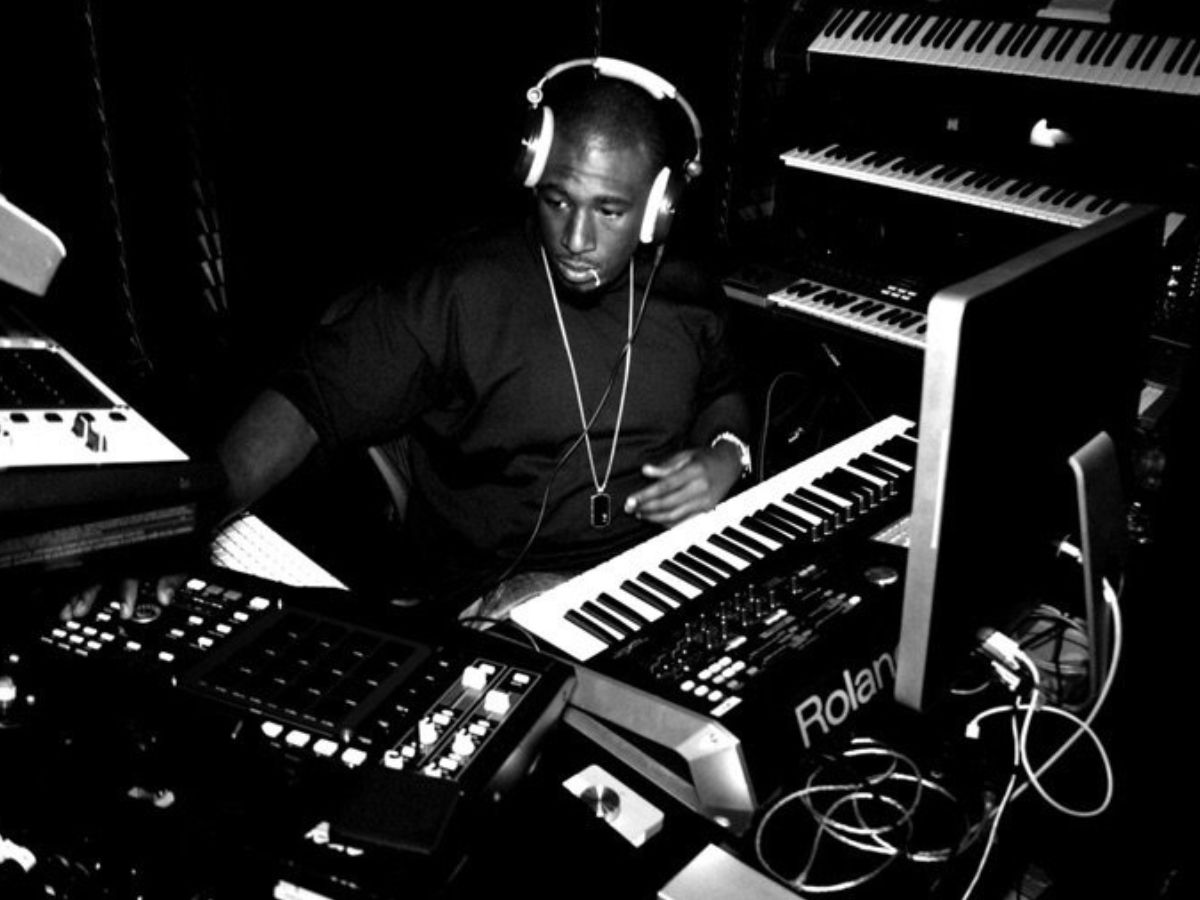

Hip Hop
How Nwa Changed Hip Hop
Modified: January 25, 2024
Discover the groundbreaking impact of NWA on the hip hop industry. Explore the transformational journey of this influential group and their lasting legacy in music history.
(Many of the links in this article redirect to a specific reviewed product. Your purchase of these products through affiliate links helps to generate commission for AudioLover.com, at no extra cost. Learn more)
Table of Contents
Introduction
Hip hop is a genre that has evolved and diversified over the years, giving rise to countless iconic artists and sub-genres. One such group that undeniably had a profound impact on the genre is N.W.A. (Niggaz Wit Attitudes). Comprised of Eazy-E, Ice Cube, Dr. Dre, MC Ren, and DJ Yella, N.W.A. emerged from the streets of Compton, California in the late 1980s. Their unapologetic and confrontational style of rap, known as gangsta rap, challenged societal norms and gave a voice to the marginalized communities.
With their debut studio album “Straight Outta Compton” released in 1988, N.W.A. revolutionized hip hop. The album served as a poignant commentary on the harsh realities of life in the inner city, tackling themes of police brutality, racial profiling, and social inequality. Its impact was immediate and far-reaching, giving birth to a new era of hip hop and inspiring a generation of artists to speak their truth through music.
However, N.W.A’s rise to fame was not without controversy. The explicit and often violent lyrics of their songs drew backlash and condemnation from mainstream media and authorities alike. But for many, N.W.A.’s raw and unfiltered expression resonated deeply, providing a platform for unheard voices and shedding light on the realities of urban life.
Throughout this article, we will delve into the history and influence of N.W.A., exploring how they changed the landscape of hip hop and left a lasting legacy that continues to reverberate through the genre today.
Background of N.W.A
N.W.A. originated from the streets of Compton, a predominantly African-American neighborhood in Los Angeles, notorious for its high levels of gang activity and social unrest. The group formed in the late 1980s, bringing together a diverse set of talents and perspectives that would shape their groundbreaking sound.
Eazy-E, a local drug dealer turned rapper, played a pivotal role in the formation of N.W.A. He provided the financial backing to start Ruthless Records, the record label that would eventually sign the group. Alongside Eazy-E, there was Ice Cube, known for his sharp lyrics and distinctive delivery. Ren and Yella brought their DJing skills to the mix, while Dr. Dre, with his production prowess, completed the lineup.
At the time of N.W.A.’s formation, gangsta rap was still a burgeoning subgenre within hip hop. The group’s experiences growing up in Compton shaped their lyrical content, which candidly depicted the harrowing realities of street life, highlighting issues such as violence, police brutality, and economic disparity. Their music was an unfiltered reflection of the environment they lived in, providing a voice for those who felt unheard.
With the guidance of Eazy-E’s mentorship and business acumen, N.W.A. began to gain recognition in the local music scene. They released their first independent single, “Panic Zone,” in 1987, which garnered attention for its gritty and unapologetic content. This early success led to the recording of their debut album, “Straight Outta Compton,” which would catapult N.W.A. into the national and international spotlight.
The formation of N.W.A. and the subsequent release of “Straight Outta Compton” marked a turning point in the history of hip hop. The group’s genuine portrayal of their experiences and unfiltered storytelling connected with audiences, propelling gangsta rap into the mainstream and solidifying N.W.A.’s place in hip hop history.
Emergence of Gangsta Rap
The emergence of gangsta rap in the late 1980s was a direct response to the socio-economic and political climate of the time. While hip hop had always been a platform for storytelling and addressing social issues, gangsta rap took it to a whole new level. N.W.A. played a significant role in shaping and popularizing this subgenre, which would come to define the West Coast hip hop scene.
Gangsta rap was characterized by its gritty and raw lyrics that chronicled the realities of street life, often showcasing the violent and criminal aspects of urban communities. It embodied a confrontational and rebellious persona, challenging authority and pushing the boundaries of what was acceptable in mainstream music.
N.W.A., with their experiences growing up in Compton, brought a unique perspective to gangsta rap. Their lyrics were a reflection of the systemic issues plaguing their community – police brutality, racial profiling, poverty, and gang violence. Their music was an unfiltered expression of the frustration and anger felt by marginalized communities, giving them a voice and empowering them to challenge the status quo.
The release of N.W.A.’s seminal album, “Straight Outta Compton,” was a turning point for gangsta rap. The album’s incendiary tracks, such as “Fuck tha Police” and “Gangsta Gangsta,” shocked and outraged many, but also resonated deeply with those who had been subjected to the injustices depicted in their lyrics.
The success of “Straight Outta Compton” paved the way for other West Coast artists to embrace the gangsta rap style and address the issues affecting their communities. Artists like Ice-T, Snoop Dogg, and Tupac Shakur would go on to become icons of the genre, further solidifying its place in hip hop history.
Gangsta rap also had a significant impact on the music industry as a whole, sparking debates about freedom of speech, censorship, and the responsibility of artists. Critics argued that the genre glorified violence and perpetuated negative stereotypes, while supporters maintained that it provided a necessary outlet for communities whose voices had been silenced for far too long.
Despite the controversies and criticisms, gangsta rap became a dominant force in hip hop and continued to evolve and influence the genre in the decades to come. Its unapologetic and politically charged nature paved the way for artists to use their music as a catalyst for social change and shed light on the harsh realities of urban life.
Impact of “Straight Outta Compton”
When N.W.A. released their groundbreaking album “Straight Outta Compton” in 1988, it sent shockwaves through the music industry and the cultural landscape as a whole. The impact of the album cannot be overstated, as it not only solidified N.W.A.’s place in hip hop history but also sparked a revolution within the genre.
“Straight Outta Compton” was a game-changer in several ways. Firstly, it gave a voice to the marginalized communities of Compton and other inner-city neighborhoods, shining a spotlight on the harsh realities they faced on a daily basis. The album’s lyrics were unflinching in their depiction of police brutality, racial profiling, and the socioeconomic struggles of African-American communities. By speaking directly to these issues, N.W.A. challenged the narrative and stereotypes perpetuated by mainstream media and brought attention to the systemic injustices faced by people of color.
The album’s success also signaled a shift in power dynamics within the music industry. With their independent record label, Ruthless Records, N.W.A. bypassed the traditional gatekeepers and took control of their own narrative. This empowered other artists to pursue their creative vision outside of the major label system, leading to a wave of independent hip hop labels and a democratization of the music industry.
Beyond its cultural impact, “Straight Outta Compton” also had a lasting influence on the sound of hip hop. The album’s production, helmed by Dr. Dre, introduced a new level of sophistication and sonic depth to the genre. Driven by heavy beats, aggressive sampling, and innovative use of synthesizers, the album set the stage for the West Coast sound that would dominate hip hop in the years to come.
“Straight Outta Compton” not only resonated with audiences but also inspired a new generation of artists. Its unapologetic authenticity and fearless approach to storytelling encouraged others to share their own experiences and perspectives through music. The album’s impact reverberated outside of the genre, inspiring a broader cultural movement that demanded change and highlighted the importance of using art as a form of social commentary.
Decades later, the influence of “Straight Outta Compton” can still be felt. The album’s themes and messages remain relevant, as issues of systemic racism, police brutality, and socioeconomic inequality continue to plague society. It serves as a timeless reminder of the power of music to unapologetically confront injustice and ignite social change.
Controversy and Criticism
From the moment N.W.A. burst onto the scene with their provocative lyrics and unabashed portrayal of street life, they faced a barrage of controversy and criticism. Their music, particularly the album “Straight Outta Compton,” was met with both outrage and acclaim, polarizing audiences and sparking intense debates about the role of art in society.
One of the main sources of controversy surrounding N.W.A. was their explicit and often violent lyrics. Songs like “Fuck tha Police” and “Gangsta Gangsta” were seen by many as glorifying criminal behavior and promoting a negative image of African-American communities. Critics argued that N.W.A.’s music perpetuated harmful stereotypes and contributed to the moral decay of society.
Law enforcement agencies and government officials also took issue with N.W.A.’s confrontational approach. “Fuck tha Police” directly confronted police brutality and racial profiling experienced by the band and their community. The song, which advocated for defying police authority, led to the Federal Bureau of Investigation (FBI) sending a warning letter to N.W.A.’s record label, expressing concerns about the song’s potential to incite violence against law enforcement.
Moreover, N.W.A.’s portrayal of women in their lyrics and music videos garnered criticism for being misogynistic and demeaning. The group’s often explicit and objectifying language towards women led to accusations of promoting sexism and contributing to a culture of disrespect and violence against women.
Despite the controversy, N.W.A. and their music had a profound cultural impact. Supporters argued that the group’s unfiltered expression shed light on the harsh realities faced by marginalized communities, giving voice to their experiences and providing a platform for discussing systemic issues. They saw N.W.A.’s music as a form of resistance against social injustices rather than a glorification of negative behaviors.
Over time, N.W.A.’s influence on hip hop and popular culture became more widely recognized. The group’s raw and uncompromising style paved the way for artists to address issues of race, police brutality, and urban life through their music. The controversy that originally surrounded N.W.A. in the late 1980s and early 1990s ultimately sparked a broader discussion on freedom of expression, censorship, and the social responsibility of artists.
While the controversies surrounding N.W.A.’s music cannot be ignored, it is essential to view their work within the socio-political context of the time. N.W.A. dared to be bold, challenging societal norms and shining a light on the injustices faced by their community. The controversy and criticism they faced only intensified the impact of their music and solidified their place in hip hop history.
Influence on Future Artists
N.W.A.’s impact on hip hop extends far beyond their own success and the controversy they generated. Their fearless approach to addressing issues of race, police brutality, and socioeconomic inequality laid the groundwork for future artists to use their music as a platform for social commentary and activism.
One of the most significant ways N.W.A. influenced future artists was through the popularization of gangsta rap. The group’s unapologetic depiction of inner-city life and their raw storytelling resonated with a generation of artists who saw the genre as a vehicle for expressing their own experiences and shedding light on social issues. Artists like Snoop Dogg, Tupac Shakur, and The Notorious B.I.G. would go on to carry the torch of gangsta rap, using their music to provide an authentic voice for marginalized communities.
N.W.A.’s impact can also be felt in the realm of production and musical innovation. Dr. Dre, a member of the group, emerged as a legendary producer, shaping the sound of hip hop with his signature West Coast beats and iconic album productions. Many artists, both within and outside of the hip hop genre, have cited Dre’s work as a major influence on their own sound and production techniques.
Furthermore, N.W.A.’s influence extended beyond the music itself. Their entrepreneurial spirit and success in building Ruthless Records served as an inspiration for aspiring artists to take control of their own careers and pursue independent paths. This DIY mentality paved the way for artists to establish their own record labels, produce their own music, and retain creative control over their art.
The social and political impact of N.W.A.’s music cannot be overstated. Their willingness to confront difficult subjects, challenge authority, and speak truth to power inspired a new generation of artists to do the same. Conscious rap, a subgenre that addresses social and political issues, emerged partly as a response to the foundation laid by N.W.A. Artists such as Kendrick Lamar, J. Cole, and Common have carried on the tradition of using their music to raise awareness and foster social change.
Moreover, N.W.A.’s influence transcends the boundaries of hip hop, reaching into other genres and artistic mediums. Their fearless and unapologetic attitude became a template for artists in various fields to push boundaries, challenge norms, and use their art to ignite conversations and inspire change.
In summary, N.W.A.’s influence on future artists cannot be overstated. Their music, lyrical content, and cultural impact laid the foundation for the evolution of hip hop and inspired a generation of artists to use their voices to fight against injustice and advocate for social change. The legacy of N.W.A. lives on through the work of artists who continue to draw inspiration from their fearless approach to music and activism.
Legacy of N.W.A
The legacy of N.W.A. is undeniable, as they left an indelible mark on hip hop and popular culture. Their impact extends beyond their controversial lyrics and their groundbreaking sound, permeating the social, political, and artistic landscape in profound ways.
One of the most significant aspects of N.W.A.’s legacy is their role in elevating the voices of marginalized communities. Through their music, N.W.A. shed light on the harsh realities of inner-city life, addressing issues such as police brutality, racial profiling, and economic inequality. They gave a voice to those who felt unheard, empowering them to demand change and exposing audiences worldwide to the systematic issues faced by marginalized communities.
N.W.A.’s impact on the genre of hip hop cannot be overstated. They pioneered the gangsta rap subgenre, which would go on to shape the sound and narratives of future generations of hip hop artists. The rawness and authenticity of their lyrics inspired artists to be unapologetically honest in their storytelling, leading to a wave of socially conscious and politically charged hip hop in the years that followed.
The production skills of Dr. Dre, a member of N.W.A., also left an indelible mark on the music industry. His innovative beats and distinctive production style revolutionized hip hop production and set the template for the West Coast sound. Many artists since then have looked to Dre’s work as a benchmark for quality and creativity in production.
Furthermore, N.W.A.’s entrepreneurial spirit and success in building their own record label, Ruthless Records, served as an inspiration for aspiring artists to take control of their own destiny. The DIY mentality championed by N.W.A. paved the way for artists to establish their own labels, produce their own music, and retain creative control over their art.
Beyond music, N.W.A.’s influence is also evident in popular culture and beyond. Their fearless attitude and willingness to challenge societal norms inspired artists in various mediums to push boundaries, speak truth to power, and use their art as a catalyst for change. The impact of their music and message can be seen in films, fashion, and even political activism, where their legacy continues to inspire individuals to fight against injustice.
The enduring legacy of N.W.A. is a testament to their cultural significance and the lasting impact of their music. Their contributions to hip hop and their fearlessness in addressing social and political issues paved the way for artists to use their voices and art as instruments of change. N.W.A.’s influence will continue to resonate with artists and audiences alike, keeping their legacy alive for generations to come.
Conclusion
N.W.A.’s impact on hip hop and popular culture is undeniable. Through their fearless approach to storytelling and their unapologetic expression of the harsh realities faced by marginalized communities, they revolutionized the genre and left a lasting legacy.
From their debut album “Straight Outta Compton,” N.W.A. redefined the boundaries of hip hop by giving a voice to the voiceless. They tackled social and political issues such as police brutality, racial inequality, and economic disparity, sparking important conversations that continue to resonate today.
Their influence on future artists cannot be overstated. N.W.A.’s unfiltered and raw style inspired a new generation of artists to use their music as a platform for activism and social change, leading to the emergence of conscious rap and socially conscious music.
In addition to their impact on the music industry, N.W.A. also exemplified the power of independence and entrepreneurship. Their success with Ruthless Records showed aspiring artists that they could forge their own path, retain creative control, and break free from the limitations imposed by major record labels.
From Dr. Dre’s groundbreaking production techniques to the unapologetic lyricism of Ice Cube, N.W.A.’s influence can be heard across generations of hip hop artists. Their sound and message continue to inspire and shape the genre, serving as a blueprint for artists who aspire to make a meaningful impact through their music.
Overall, N.W.A.’s legacy lies in their ability to disrupt and challenge the status quo. By fearlessly addressing societal issues and bringing attention to the struggles faced by marginalized communities, they ignited a cultural revolution that transcended music. They paved the way for future artists to use their platforms to demand social justice and equality, leaving an indelible mark on hip hop and popular culture.
As we reflect on their impact, it is clear that N.W.A.’s influence extends far beyond their controversial lyrics and groundbreaking sound. They embody the essence of hip hop as a platform for empowerment, expression, and cultural commentary. Their legacy will continue to inspire artists, provoke thought, and drive societal change for years to come.











